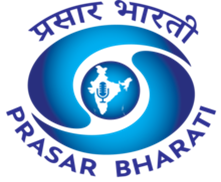

22nd October 2022 (6 Topics)
Context
In view of the recommendations as per Telecom regulatory authority of India (TRAI), the Ministry of Information and Broadcasting has ordered the State Governments’ are not allowed to enter into Educational broadcasting on their own and need to take consent from the public broadcaster, the ‘Prasar Bharati’.
About
The Recent Guidelines:
- The entry of Central/State/Union Territory governments into the broadcast activity for educational purposes would be allowed through Prasar Bharati route via "suitable"
- All such existing activities would also have to be brought under its purview.
- Till then, uninterrupted broadcast of the on-going education channels and other scheduled programmes would be allowed.
- Under the existing policy guidelines, government universities, colleges, schools, Krishi Vigyan Kendras, certain autonomous bodies and agricultural universities are eligible to set up community radios.
|
TRAI:
|
Suggestions of TRAI:
- In 2012, the TRAI had suggested that the Central and State governments, their companies, undertakings, joint ventures with the private sector and the entities funded by the governments should not be allowed to enter the business of broadcasting and, or, distribution of TV channels.
- It relied upon the Sarkaria Commission’s recommendation and the ‘Cricket Association case’
Supreme Courts’ Verdict:
- The SC has observed that public service broadcasting should be in the hands of a corporation (s) set up under a statute and the constitution of such a corporation (s) should be such as to ensure their impartiality in political, economic and social matters and on other public issues.
Do States have a call on their own Broadcasting in India?
- In the context of the demand by some States to have their own broadcasting stations, the TRAI had cited the views of Sarkaria Commission and the Verghese Committee, the power of an exclusive call to the States regarding broadcasting could not be supported.
Prasar Bharati: Roles and Working
- Prasar Bharati, is an independent statutory, autonomous body set up by an Act of Parliament.
- It comprises of the Doordarshan Television Network and Akashvani All India Radio, which were earlier media units of the Ministry of Information and Broadcasting.
- The Parliament of India passed the Prasar Bharati Act to grant this autonomy in 1990, but it was not enacted until 15 September 1997.
|
Do you know? Reuters Institute’ Digital News Report 2021 ‘revealed that DD News and All India Radio are the most trusted News brands in India. |

- Roles assigned: The TRAI has suggested that the body should fulfil the legitimate aspirations of government entities as regards broadcasting activities, while at the same time recommending the 'arm’s length' relationship between Prasar Bharati and the government be further strengthened to enhance its autonomy and functional independence.
- Composition:
The Prasar Bharati Act vests the general superintendence, direction, and management of affairs of the Corporation in the Prasar Bharati Board which may exercise all such powers and do all such acts and things as may be exercised or done by the corporation.
The Prasar Bharati Board consists of:
- Chairman
- One Executive Member
- One Member (Finance)
- One Member (Personnel)
- Six Part-time Members
- Director-General (Akashvani), ex officio
- Director-General (Doordarshan), ex officio
- One representative of the Union Ministry of Information and Broadcasting (India), to be nominated by that Ministry and
- Two representatives of the employees, of whom one shall be elected by the engineering staff from amongst themselves and one, shall be elected by the other employee from amongst themselves.
- The President of India appoints the chairman and the other Members, except the ex officio members, nominated member and the elected members. Board meetings must be held at least once in every three months each year.


